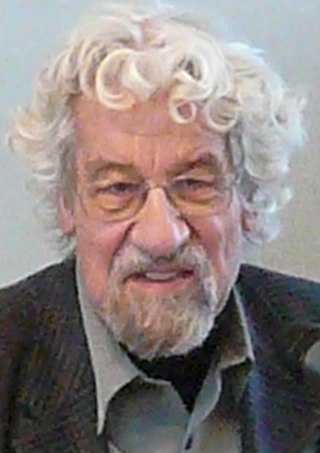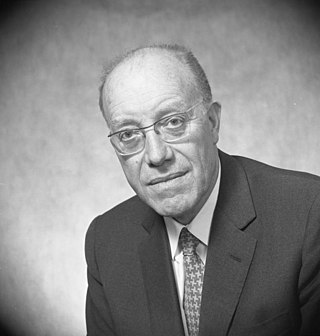Related Research Articles

The Ludwig Maximilian University of Munich is a public research university in Munich, Germany. Originally established as the University of Ingolstadt in 1472 by Duke Ludwig IX of Bavaria-Landshut, it is Germany's sixth-oldest university in continuous operation.

The Technical University of Munich is a public research university in Munich, Germany. It specializes in engineering, technology, medicine, and applied and natural sciences.

Garching bei München or Garching is a city in Bavaria, near Munich. It is the home of several research institutes and university departments, located at Campus Garching.

Hans-Peter Dürr was a German physicist. He worked on nuclear and quantum physics, elementary particles and gravitation, epistemology, and philosophy, and he advocated responsible scientific and energy policies. In 1987, he was awarded the Right Livelihood Award for "his profound critique of the Strategic Defense Initiative (SDI) and his work to convert high technology to peaceful uses."

The Gottfried Wilhelm Leibniz Prize, or Leibniz Prize, is awarded by the German Research Foundation to "exceptional scientists and academics for their outstanding achievements in the field of research". Since 1986, up to ten prizes have been awarded annually to individuals or research groups working at a research institution in Germany or at a German research institution abroad. It is considered the most important research award in Germany.
The International Max Planck Research School for Molecules of Life is a German centre for postgraduate training and research in life sciences. It is one among over 60 International Max Planck Research Schools in Germany. It is located in Munich and was established in 2005. The Ph.D. program is operated by the Max Planck Institute of Biochemistry and works in close collaboration with the Max Planck Institute for Biological Intelligence and two universities in Munich.

Otto Haxel was a German nuclear physicist. During World War II, he worked on the German nuclear energy project. After the war, he was on the staff of the Max Planck Institute for Physics in Göttingen. From 1950 to 1974, he was an ordinarius professor of physics at the University of Heidelberg, where he fostered the use of nuclear physics in environmental physics; this led to the founding of the Institute of Environmental Physics in 1975. During 1956 and 1957, he was a member of the Nuclear Physics Working Group of the German Atomic Energy Commission. From 1970 to 1975, he was the Scientific and Technical Managing Director of the Karlsruhe Research Center.
Thomas Herzog is a German architect from Munich known for his focus on climate and energy use through the use of technologically advanced architectural skins. He began with an interest in pneumatics and became Germany's youngest architecture professor at the age of 32. He established his firm Herzog + Partner in 1983.

Heinz Maier-Leibnitz was a German physicist. He made contributions to nuclear spectroscopy, coincidence measurement techniques, radioactive tracers for biochemistry and medicine, and neutron optics. He was an influential educator and an advisor to the Federal Republic of Germany on nuclear programs.

Markus Heinsdorff is a German installation artist working in the areas of design, architecture and photography.

Dieter Reiter is a German politician and the mayor of Munich, the capital of the state of Bavaria. He is a member of the Social Democratic Party.
Guido Bünstorf is professor of Economics at the University of Kassel and head of the Economic Policy Research Group. Since 2010 he is also co-director of International Center for Higher Education Research (INCHER-Kassel). He has been research Professor at Leibniz Institute of Economic Research Halle (IWH) since 2012 and a visiting professor at the University of Aalborg since 2013.
Jutta Allmendinger is a German sociologist who has been serving as the president of the WZB Berlin Social Science Center and a professor of educational sociology and labor market research at Humboldt University since 2007. She is also a senior fellow at the Center for European Studies at Harvard University.

The Königinstraße is a street in Munich. It runs west of the Englischer Garten from the Von-der-Tann-Straße in the district of Maxvorstadt, to the north and to the Maria-Josepha-Straße and Mandlstraße in the Ensemble Alt-Schwabing.

Stefan Wurster is a German political scientist, Professor for Policy Analysis at the Munich School of Politics and Public Policy at the Technical University of Munich and the member of the TUM School of Social Sciences and Technology. He is known for his research on policy analysis in policy fields related to sustainability, democracy-autocracy comparisons, development of party systems and governance structures in energy, innovation, research and environmental policy.

Lukas Köhler is a German politician of the Free Democratic Party (FDP) who has been serving as a member of the Bundestag from the state of Bavaria since 2017.
The Staatliche Fachakademie für Fotodesign München was an independent training facility for photography and photo design in Munich with several predecessor institutions dating back to 1900. It was incorporated into the Munich University of Applied Sciences in 2002.

The Campus Garching is a campus of the Technical University of Munich and a number of other research institutes, located around 10 km north of Munich in Garching. At the same time, it constitutes a district of the city. With more than 7,500 employees and around 17,000 students, it is one of the largest centers for science, research and teaching in Germany.
Klaus Josef Lutz is a German lawyer and business manager. In 2008, he took over as chief executive officer and chairman of the board of BayWa and had since shaped the listed group with activities in the agricultural, building materials, and energy sectors. Previously, as managing director, he restructured, among others, Süddeutscher Verlag, which publishes the Süddeutsche Zeitung. Lutz is considered an expert on cooperatives.

Viehbach is a village in the municipality of Fahrenzhausen in the district of Freising.
References
- ↑ Thomas Hamacher (1994-01-10). "Baryonische B-Zerfälle" (PDF). High-Energy Physics Literature Database (in German). Retrieved 2016-04-08.
- ↑ Thomas Hamacher (2012), "Energie und Wirtschaft in Deutschland: Gedanken zur Energiewende" (Online), Faszination Forschung: Tum Research Highlights; Technische Universität München's Science Magazine (in German), Technische Universität München: 29–34, ISSN 1865-3022
- ↑ Heinz Wraneschitz (2012-07-27). ""Man muss nur wollen wollen" – SPD stellt Konzept zur Stromwende in Bayern vor". Bayerische Staatszeitung (in German). Retrieved 2016-04-08.
- ↑ Bayerischer Rundfunk (2016-03-23). "BürgerForum live: Halbzeit Energiewende – schaffen wir die Zukunft ohne Atomstrom?" (in German). Retrieved 2016-04-08.
- ↑ Bayern 2 – Tagesgespräch (March 11, 2014). "Drei Jahre nach Fukushima: Kommt jetzt die Renaissance der Atomkraft?" (in German). Archived from the original on April 8, 2016. Retrieved April 8, 2016.
{{cite web}}: CS1 maint: numeric names: authors list (link) - ↑ "Wissenschaftler werben für Kernfusionsexperiment" (in German). Ostsee-Zeitung. 2013-03-27. Retrieved 2016-04-08.
- ↑ T. Hamacher; P. Ahlhaus; C. Kandler (2012), Bayerische Stromversorgung im Jahr 2022 – Kurzstudie im Auftrag der SPD Bayern (Online) (in German), Lehrstuhl für Energiewirtschaft und Anwendungstechnik, Technische Universität München
- ↑ Alexander Stirn (2011-04-01). "Wir brauchen Unternehmen, die Energieeffizienz in die Städte bringen". Interview mit Prof. Dr. Thomas Hamacher (in German). Max-Planck-Gesellschaft. Retrieved 2016-04-08.
- ↑ Benjamin Köster (2016-02-08). "Fachübergreifend forschen für die Energiewende" (in German). Süddeutsche Zeitung. Retrieved 2016-04-08.